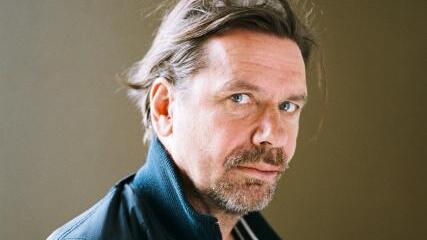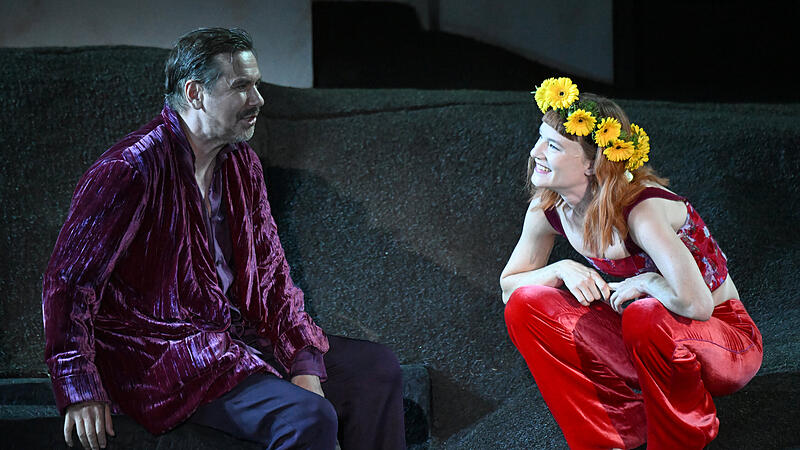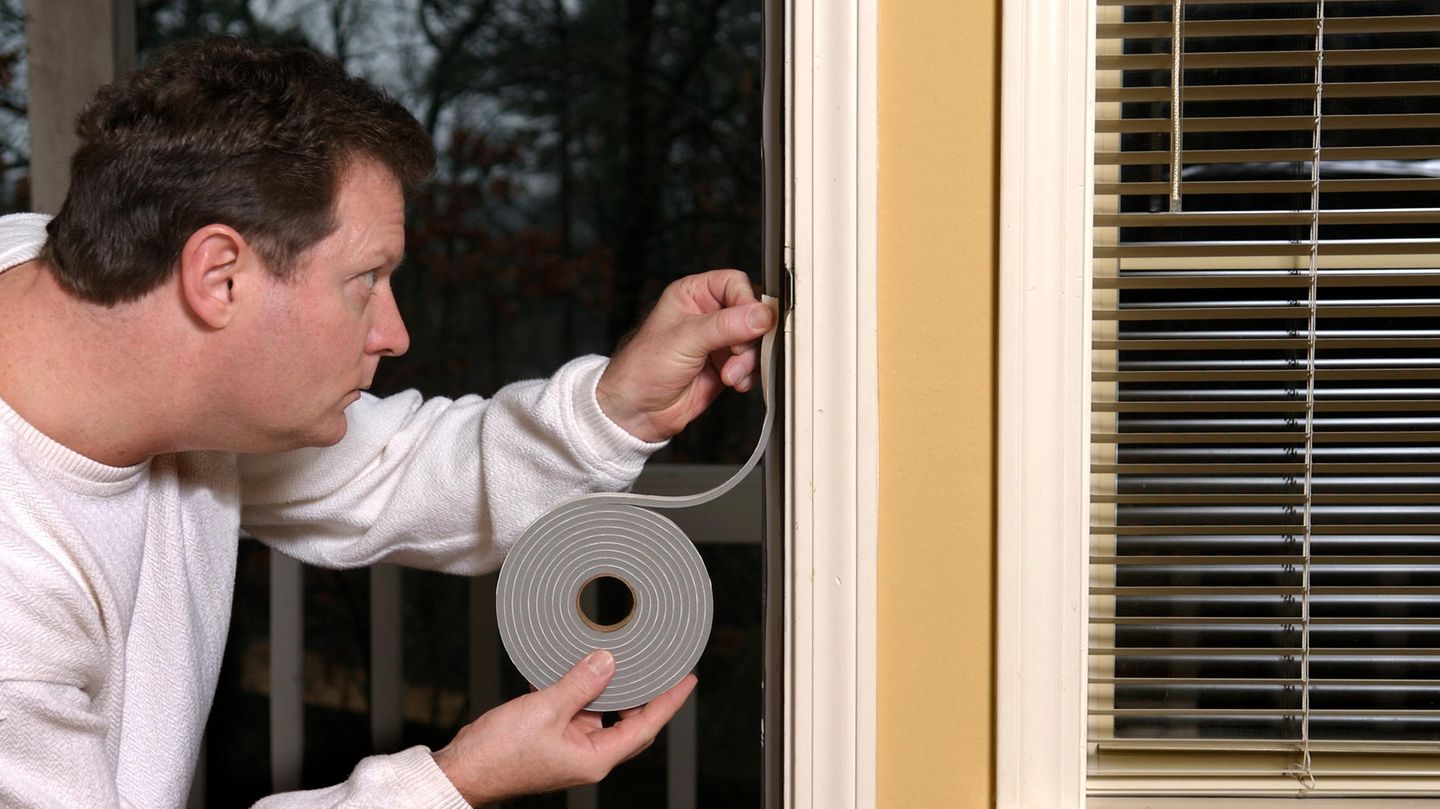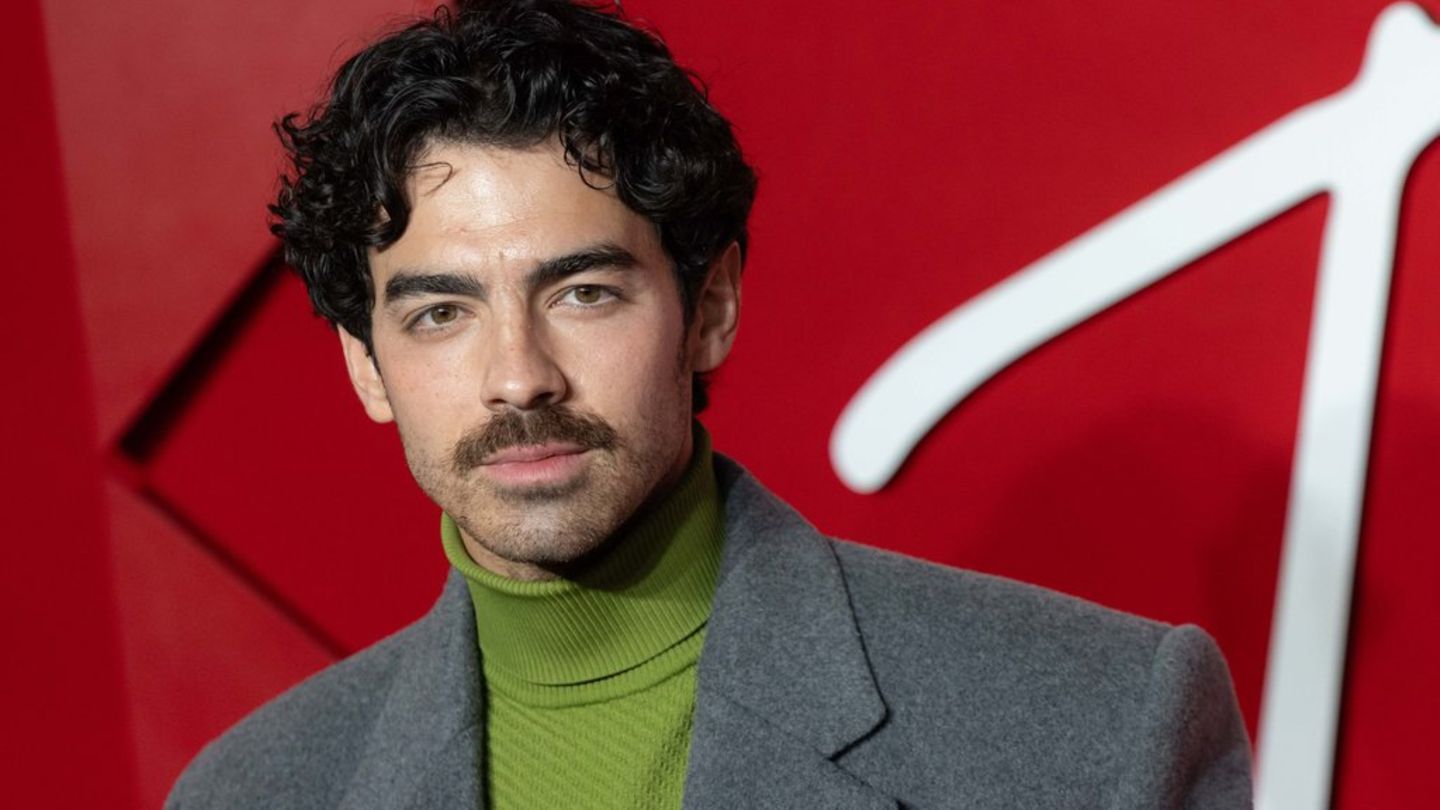It had already leaked out, and on Thursday the Salzburg Festival made it official at a press conference in Vienna: Castle actor Michael Maertens will be playing Jedermann in the traditional play of the same name by Hugo von Hofmannsthal from 2023, his love interest is the Austrian actress Valerie Pachner, who is best known for her films. who (a surprise and novelty) will also play death – and probably quite differently from Edith Clever before.
Because Lars Eidinger and Verena Altenberger had declared after the premiere last summer that after two seasons as Jedermann and Amour it was over for them again, acting boss Bettina Hering and director Michael Sturminger were forced to look for a new cast for 2023. This was also changed in almost all other positions. So singer Anja Plaschg (Soap&Skin) will take over the role of Kathleen Morgeneyer’s Faith, Cornelia Froboess from Angela Winkler the role of Jedermann’s mother. Sarah Viktoria Frick not only embodies the devil (previously: Mavie Hörbiger), but also God.


Maertens, who will be celebrating his 30th festival anniversary next year (he played in the world premiere of Botho Strauss’ “Dasbalance” for the first time in Salzburg in 1993), has initially signed for two years, so in 2024 he will also be in the first year of the new acting director Marina Davydova on the Cathedral Square.
Since 1920, “Jedermann” has been performed 757 times as part of the Salzburg Festival. The 2023 premiere is on July 21st, after which there are 13 more performances on the program up to August 29th, the other key points of which the festival wants to announce on December 9th.
“The fact that I also play death is of the greatest importance”
Valerie Pachner as a paramour was only a few on their bill. The 35-year-old Austrian was a member of the ensemble at the Munich Residenztheater from 2013-17, but only became known to the general public through her films – for example as Wally in “Egon Schiele: Tod und Mädchen” (2016). Since Terrence Malick’s “A Hidden Life” she has had an international film career. In the first interview, she explains why she kept her appointment calendar free for Domplatz.
APA: Ms. Pachner, when were you asked if you wanted to take on the paramour? And did you somehow expect that?
Valerie Pachner: In the summer, Bettina Hering (the acting director, note) and I talked about it for the first time. I don’t know if I should have expected that. It has surprised me. And very happy.
I wouldn’t have put you at the top of the list because in general consciousness you are much less present in theater than in film.
Pachner: I don’t feel that far from the theater at all, because I started with the theater and also spent four years at the Residenztheater. But it’s true that my career is still more associated with film in the public eye.


View picture gallery
After two years, Lars Eidinger lets Jedermann be because his international film career is really taking off. If I look at your international films since Terrence Malick’s A Hidden Life, it’s not much different with you. Nonetheless, return to the theater.
Pachner: When I left the theater in 2017, it was clear that this was only a temporary farewell. Since then I have never found time for the theater because of the film engagements and now I consciously make the space for it. There was a longing in me to be back on stage. What’s more: I’ve been on the road quite a bit now and I’ve also shot a lot in English. There was now the desire to work with the German language again, preferably in the theater, where the language has a different emphasis, and to do something in Austria again.
How long did you sign for?
Pachner: I think it’s only for one year.
I can’t spare you the classic “Jedermann” questions: Have you ever been to Domplatz and what do you think of what you saw there?
Pachner: I saw my first “Jedermann” in 2017, with Stefanie Reinsperger and Tobias Moretti, that was also Michi Sturminger’s first “Jedermann” production there, and now this year with Lars and Verena. With “Jedermann” this performance history, this theatrical historical aspect, is of course something that gives the piece even more weight. I’ve always found that interesting.
Do you already have any idea what accents you can bring to this role, which always means: a lot of attention, but little text…
Pachner: The most important thing for me in this context is that I also play death. Love affair is and remains a man’s love object. As an actress you can try everything – but the text doesn’t give much more. You can’t change that. That’s why it’s interesting for me as an actor that the other role gives me more space. There is an interesting tension in the duality of these two characters, with the love interest representing love and life. I can no longer see the love affair without the thought that I’m also playing death. For me, that was a crucial factor in my decision.
Wouldn’t you have done it if it wasn’t for death? So you said: death or life?
Pachner: That would have been called “death and life” (laughs). No, I would have “just” played the paramour. But that’s just more interesting for me as an actress.
Even more interesting would be an Jederfrau instead of an Jedermann. Wouldn’t the time be ripe for that?
Pacner: Definitely. The English text is called “everyman”, and Jedermann means everyone, so it doesn’t necessarily have to be a man. I think it can and should definitely be played by a woman.
The fuss is usually pretty big. The dress of the paramour often attracts more attention than their playful abilities. Stefanie Reinsperger had very bitter experiences there, which she also wrote about. How prepared are you? Can you get away from that?
Pachner: I feel safer there because I’m also playing death. My acting approach is also never so much the how as the what. Nevertheless, the aspect shows that the interest in her clothes and her body is so great that the patriarchal structure that is inherent in everyone in a certain way can still be found in society today.
You can play with it – or you can fight it. Verena Altenberger tried it by saying in the first year: I have a short hairstyle for a film role, let’s just use it for the love affair! Now, of course, it would be interesting to know what kind of shooting you have in the context of “Jedermann”?
Pachner (laughs): At the moment it really looks as if I’ll be going straight to the next shoot after “Jedermann”. But I can’t talk about that yet. But the question is whether you can really only give the character something about the setting of the appearance? I do not think so.
How well do you know your Jedermann Michael Maertens?
Pachner: Of course I know him as an actor. That’s why I’m so happy about this cast and I’m very excited to work with him.
Maertens is not one of those earlier classic Jedermann à la Curd Jürgens, Klaus-Maria Brandauer or Peter Simonischek. He’s not a virile blusterer. What kind of man do you picture when you think of him?
Pachner: As you say: no rumble, but something more fragile, more sensitive, also probably more hesitant. I think it’s a pleasant prospect to have someone like that as a counterpart. (laughs)
Have you ever worked with director Michael Sturminger?
Pachner: No, not yet either.
How likely is it that you will also be seen at theaters in Vienna?
Pachner: I really can’t estimate that at the moment. At the moment I’m happy that I’ve kept the summer free for the festival. Everything else, how it will continue with me and the stage, you will see.
Source: Nachrichten



